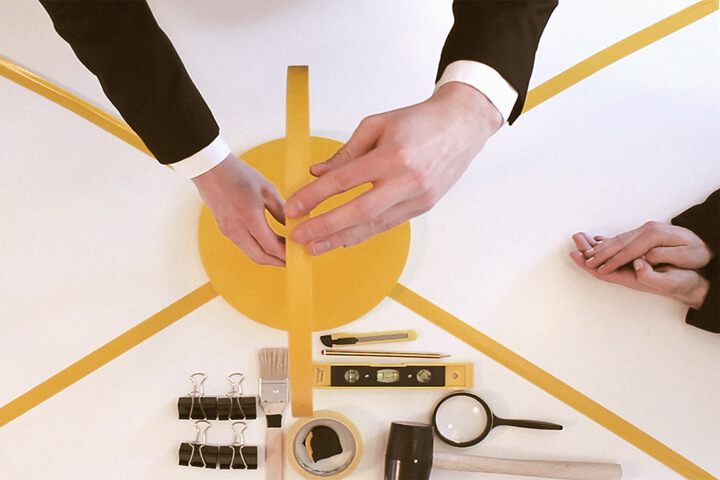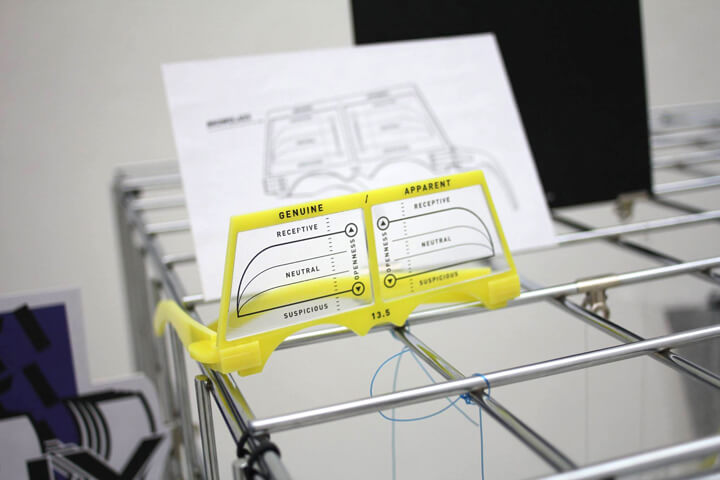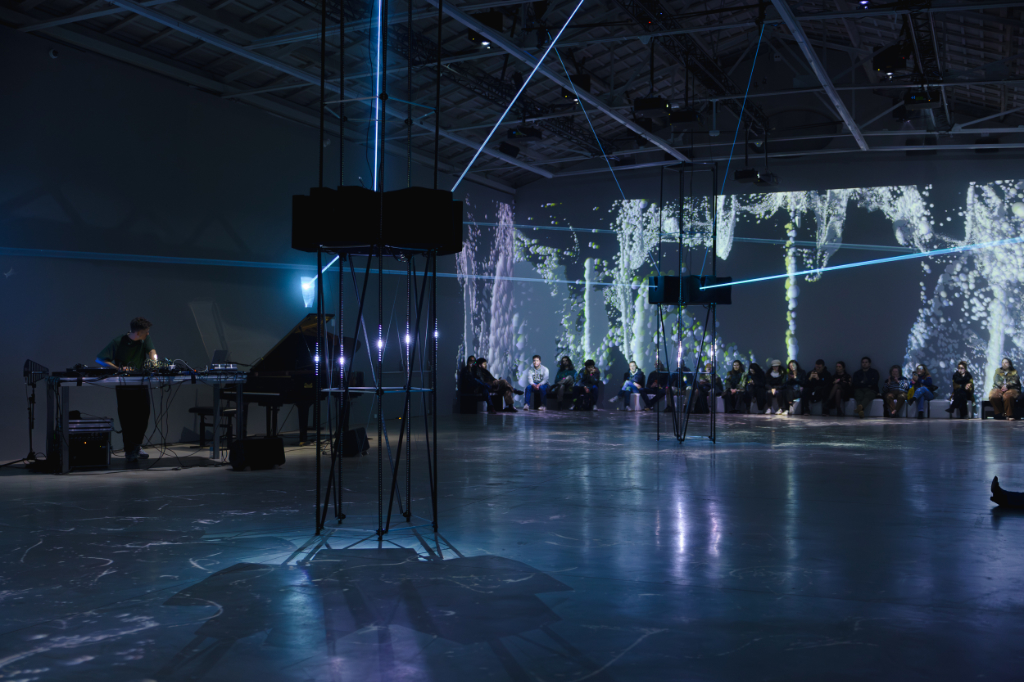Words by Cathrine Disney
Pestana’s graduate work, After Information Series – The Exudaters, and most recent piece titled The Infumis, is part of an ongoing research project imagining a post-informational era where biotechnologies are widely accepted and exploited.
Both scenarios demonstrate a future in which the human microbiome has been modified in order to turn waste or toxins, such as sweat and pollutants, into nutrients that can be absorbed directly into the bloodstream.
Although it may seem like a storyline from a sci-fi movie, Pestana’s work is based on real scientific research. By envisioning these technologies in alternative human realities, Pestana raises discussion and debate surrounding the social implications of biotechnologies.
What is more important: to take or not to take yourself too seriously in order to be creative?
I hate to be predictable, but both are equally important. My work explores new and emerging technologies in the context of their socio-cultural effects in (im)probable future societies.
My explorations deal with a variety of subjects relating to our desire as humans to be in control of our own nature, and the effects of ongoing technological developments on our society.
I see humans as being defined by contemporary technologies, not just by the biological or psychological characteristics that confine us. In one way or another, we have for centuries shaped our lives and our world through technology.
It defines our universes and ultimately who we are. These subjects are inherently complex. Not only do they challenge my own understanding of fundamental things I’d always taken to be irrefutable at profound philosophical levels.
But they also require me to dissect, absorb and process vast amounts of highly complex research, information and critical thought. I take this very seriously.
But don’t get me wrong, not being serious is essential too. In order to be creative, we need to lose gravity at some point and release ourselves into the cosmos where madness reigns. But we must stay aware. Otherwise, we can be trapped there forever, which is quite tempting… but ultimately fruitless.
We have to bring what we’ve found back to the world of 9.807 m/s² gravity and use the forensics of rational process to alloy that madness with rigour and substance. Only then can you get to intriguing and thought-provoking ideas that can genuinely challenge people’s perspectives?
I like to explore scenarios from both the near and distant future, but always close enough to resonate with our own reality and make us think about the world in different ways. In order to achieve this, I need to spend time in zero gravity. So I take everything seriously. Including not being serious.
Solitude or loneliness, how do you spend your time alone?
I come from a traditional Portuguese Catholic background. There, people are brought up to believe that we are never alone, that some kind of supernatural human-like being is always watching us. Their intuition has been proven correct. We can never be alone. We and everything around us is impregnated with alien-like microorganisms, such as bacteria. I spend my time alone thinking about things like this.
Who or what was the last person, place or thing that fascinated you?
Essex is a fascinating place for me. English people tell me it makes them think of women with fake tans and hair extensions. As a foreigner, I have none of this cultural baggage. For me, its history holds a mystery and eccentricity that I’m drawn to. In the 19th century, for example, people moved there to practice specific ideologies and beliefs, forming various communities and colonies.
Some were self-sufficient, others promised salvation to delinquents through labour and others claimed to offer their inhabitants the gates to heaven. They were basically social experiments, escapist and utopian in many cases.
They didn’t last long. But to me they make Essex feel like a land of dreams and fiction, a quietly transformative place. It reminds me of the place I come from, the island of Madeira. There you find communities of young and old people with sometimes pretty extreme ideologies, pursuing self-sufficiency and developing close relationships with the land.
Essex also has a surreal feeling to it. Its peaceful, immaculate and infinite landscape is rudely interrupted by floating islands of heavy machinery, creating an almost breathtaking contrast, a collage of two alternative realities.
I love the South Essex Marshes, where the featureless green landscape meets a magnificent cathedral of machinery ripping into the skies – the Shell Haven Refinery. For me, Jason Orton’s ‘New English Landscape’ beautifully represents this surreal, hybrid reality.
What’s your favourite time of the day?
I tend to generate more ideas in transitory places and transitional times, they feel more inspiring to me. So I’d say early morning when I wake up, lunchtime when I have my break or late at night, just before I go to bed.
One for the road… What are you unafraid of?
Discord. As an artist or designer I think this is vital, it’s the only way to progress. It seems to come easier to some people than others. I strongly believe that if I’m showing people what they want to see, I’m doing something wrong. Being honest and transparent is far more important.








